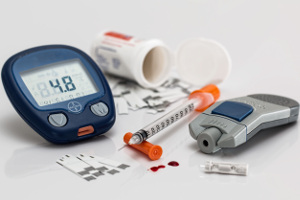 The National Health Service (NSH) is finding ways to minimise risks of diabetes 2, a serious yet preventable disease. Last year, the NHS launched Healthier You, a diabetes prevention initiative to help high-risk patients delay or stop the onset of type 2 diabetes. This year, the agency has recently announced its plans to make use of a range of apps, gadgets, wristbands, and other digital products to improve rates of prevention all over the UK.
The National Health Service (NSH) is finding ways to minimise risks of diabetes 2, a serious yet preventable disease. Last year, the NHS launched Healthier You, a diabetes prevention initiative to help high-risk patients delay or stop the onset of type 2 diabetes. This year, the agency has recently announced its plans to make use of a range of apps, gadgets, wristbands, and other digital products to improve rates of prevention all over the UK.
Together with Public Health England and Diabetes UK, the NHS announced the second phase of the programme, which will make use of technology to offer support and guidance. Five tech companies were tapped to test its digital tools to see improvement rates of diabetes prevention. NHS expects this pilot project to help 5,000 patients in a span of six months and be part of a year-long trial in addressing obesity and high blood sugar levels through digital interventions.
Simple Weight Loss App to Prevent Diabetes
One of the mobile applications the NHS makes use is OurPath, a weight loss app created by Chris Edson. Edson, who has a background in engineering and quantum, was commissioned by NHS for diabetes management. While making use of digital interventions, the NHS save at least half a billion pounds in the next 10 years while tackling diabetes 2 prevention. According to him: “Within the NHS we saw this growing swell of diseases that came from our own lifestyle habits. The main diseases that are killing us now are things like heart disease, lung cancer, diabetes.” Edson’s first participant in the OurPath app was a family member on a verge of developing the condition and lost 10 kilograms.
Edson says this mobile app is based on the principles of third-wave Cognitive Behavioural Therapy (CBT). One huge problem people encounter while trying to change their habits is getting through “moments of self sabotage or a perceived a failure in their efforts.” With Acceptance and Commitment Therapy, the goal is not to try to change people’s thoughts, rather to encourage them to accept this feeling and move towards the goal they set. For instance, at the start of the program, the app asks patients to list a set of values and it directs them to behave in a way that is aligned to those values.
Patients will have a personal OurPath mentor, who is a registered dietician they can contact 24/7 and will be part of a 10-member peer group. This group of people provides the coaching and support to help each other stick to the program. In addition, a set of scales are linked to participants’ phones and as soon as they weigh themselves, the data is also sent to the support group.
According to Edson, the NHS will only spend about £300 over a person’s entire lifetime. There will be a £700 difference for each patient through the program until 2020. This means the agency will be able to save about £525 million.
 English
English 中文
中文
